As part of the seminar "Games for Health", an interdisciplinary offer between psychology and game studies, the students were given the opportunity to create their own game for computers, smartphones and the like, which should improve the health behavior of the users.
In a group of four students, we quickly came to the consensus that we wanted to try to tackle problematic alcohol consumption with our game.
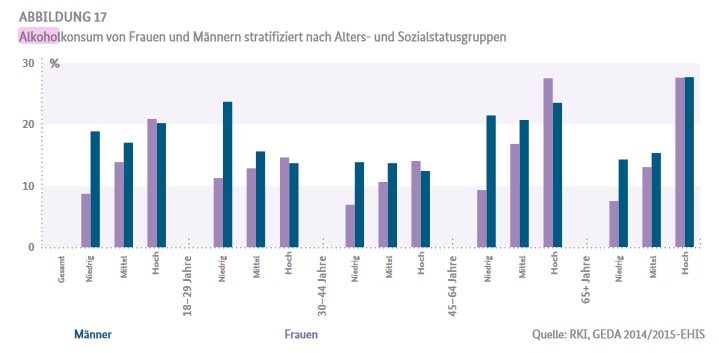
Alcohol consumption and its abuse are ubiquitous in our society. In 2014, 90% of people between 18 and 64 in Germany consumed alcohol. Of these, 37.9% alone provided evidence of clinically relevant alcohol consumption. This is according to the Epidemiological Survey on Addiction from 2015.
Who do we want to reach with our game?
The question of how to address this specific health issue in an appropriate and successful way turned out to be an interesting one right from the start. Who exactly should we target? Would it work to focus on people who are already alcoholics?
The decision to do so was supported by an empirical psychological study from 2011 (see references), which strongly influenced our concept. The subjects of the study were alcoholics, but were already in therapy. The task was to identify as quickly as possible a drink that appeared on a screen in front of the study participants as either alcoholic or non-alcoholic. With the aid of a joystick, alcoholic beverages were to be moved away to the back of the screen and non-alcoholic beverages were to be moved toward the participants. The result was that this had an effect on the everyday life of the test persons. They now showed a higher tendency with regard to the specific non-alcoholic beverages. The game concept and mechanics are based entirely on this study and its results. The study also explains why we decided to target alcoholics.
During the development process, the consideration came up that people with an alcohol addiction might not have the capacity and the possibilities to deal with and deal with our game. To this it remains to add that we want to focus on a target group that is already in therapy and ready to deal with their behavior. This means that the people we want to address with the game are looking for ways to support their healing. At the same time, we can imagine that the game can be used by people who exhibit risky alcohol behavior.
The game's disposition is therefore mobile 0‰Promille" is a free smartphone game and thus playable anywhere and for just a few minutes. We decided to approach the subject matter in a very playful way. Thus, an interesting narrative winds around the game mechanics, which should facilitate access even for people who have less leisure and time due to their illness.
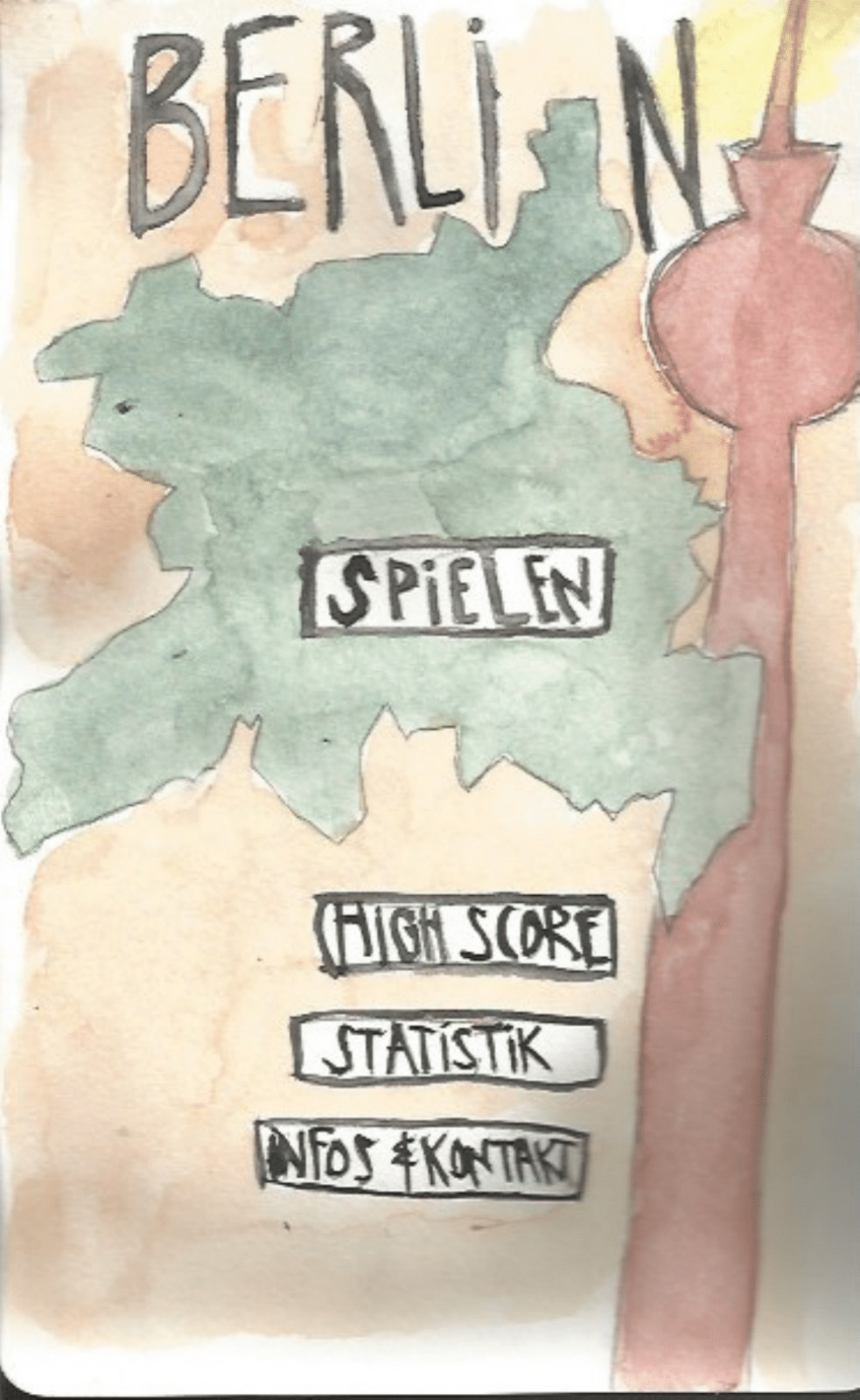
How is the temptation of alcohol dealt with?
We have also thought of enriching the game with information and offers of help, so that a possible relapse is always part of the game. After all, it's also about the fact that temptations will always occur in the players' real lives. The game should address these dangers and anchor a positive basic feeling in the players by resisting temptations through play. This is implemented in the game in such a way that an information card about the specific alcoholic beverage appears after each level. Through these cards, one learns about the dangers of alcohol. The narrative of the game is also based on the fact that you have to say "no" to alcoholic beverages again and again.
Another exciting aspect is that the players follow the story of their own avatar, who has successfully overcome his alcohol addiction and decided to travel across Europe. In the process, he or she visits various European cities that serve as levels.
The "Help & Contacts" menu is also an important function. The player can access it via the main menu and it lists various hotlines or websites that are supposed to help the player deal with the addiction. The player is regularly made aware of this in the loading screen.
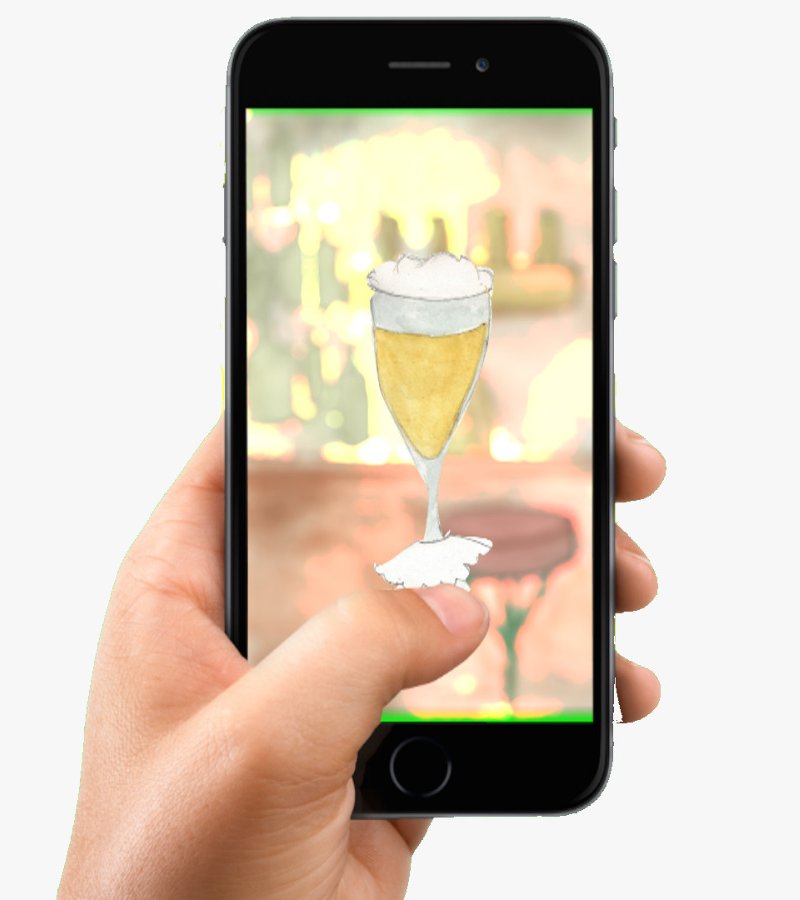
But how should the whole thing be implemented in the first place?
Our game uses a very simple mechanic that is common in dealing with smartphones - swiping. By swiping, you enter commands into the smartphone by swiping your finger on the display. The players swipe alcoholic drinks away from them and non-alcoholic drinks towards them. The whole thing is packaged narratively and design-wise to make it more appealing to players. This is done through the single player and story mode.
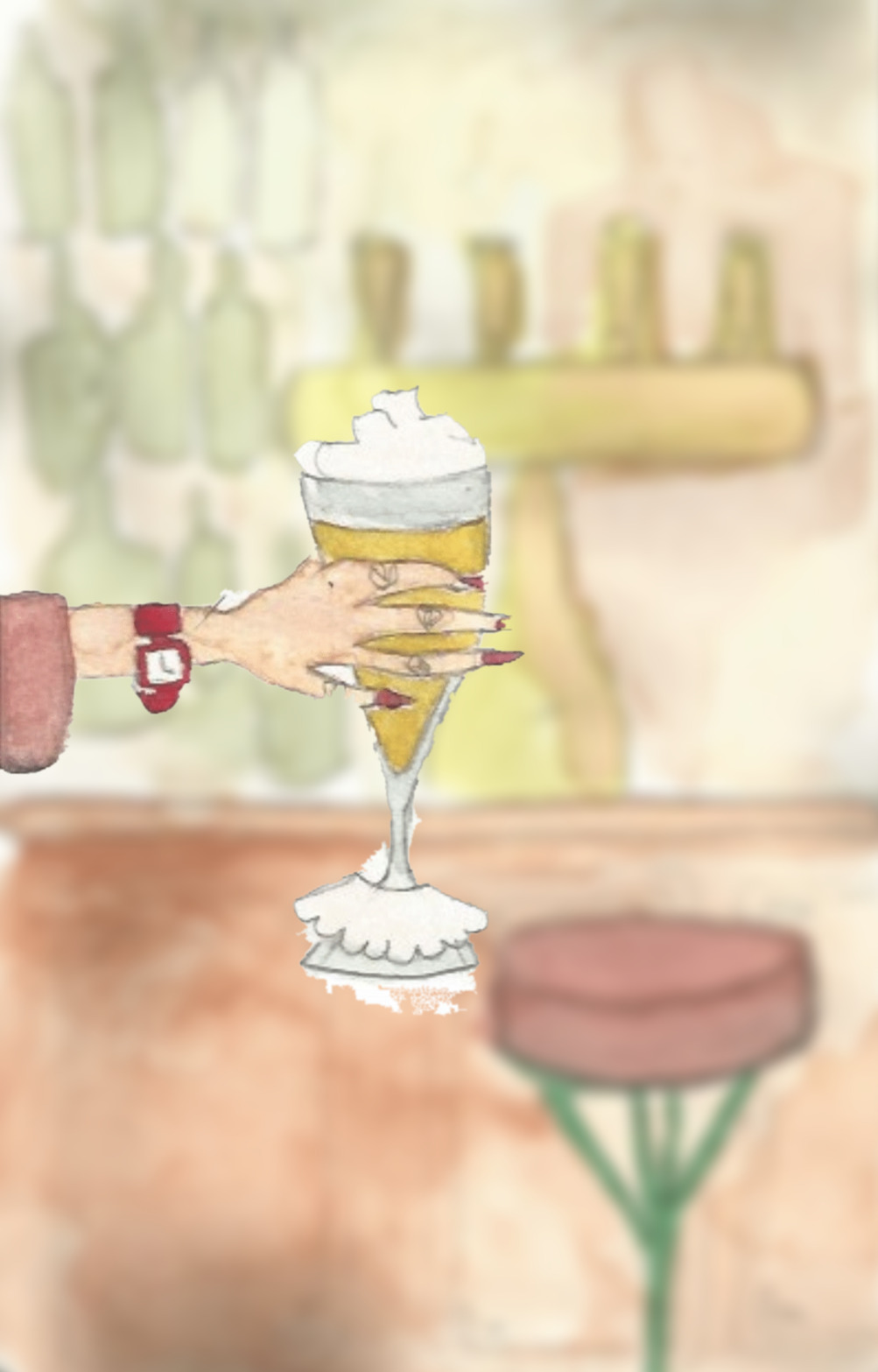
The levels always follow a similar pattern: a hand places the first drink in the center of the screen, signaling the start of the game. Each level consists of a different number of rounds, which vary depending on the difficulty and can last between two and four seconds. Each level is visually different from the others, for example, different backgrounds are used and the hand that holds the drink in at the beginning of the game is designed differently in each level. The drinks differ from level to level in order to present as much variety as possible, and to respond to the local conditions of each European city. Care is taken to ensure that the alcoholic drinks are sufficiently different from the non-alcoholic drinks so that there is no confusion, for example between pure orange juice and the long drink vodka-orange. In addition, at the beginning of each level, the player is shown which drinks to swish to or from, so that they know how to handle each drink correctly.
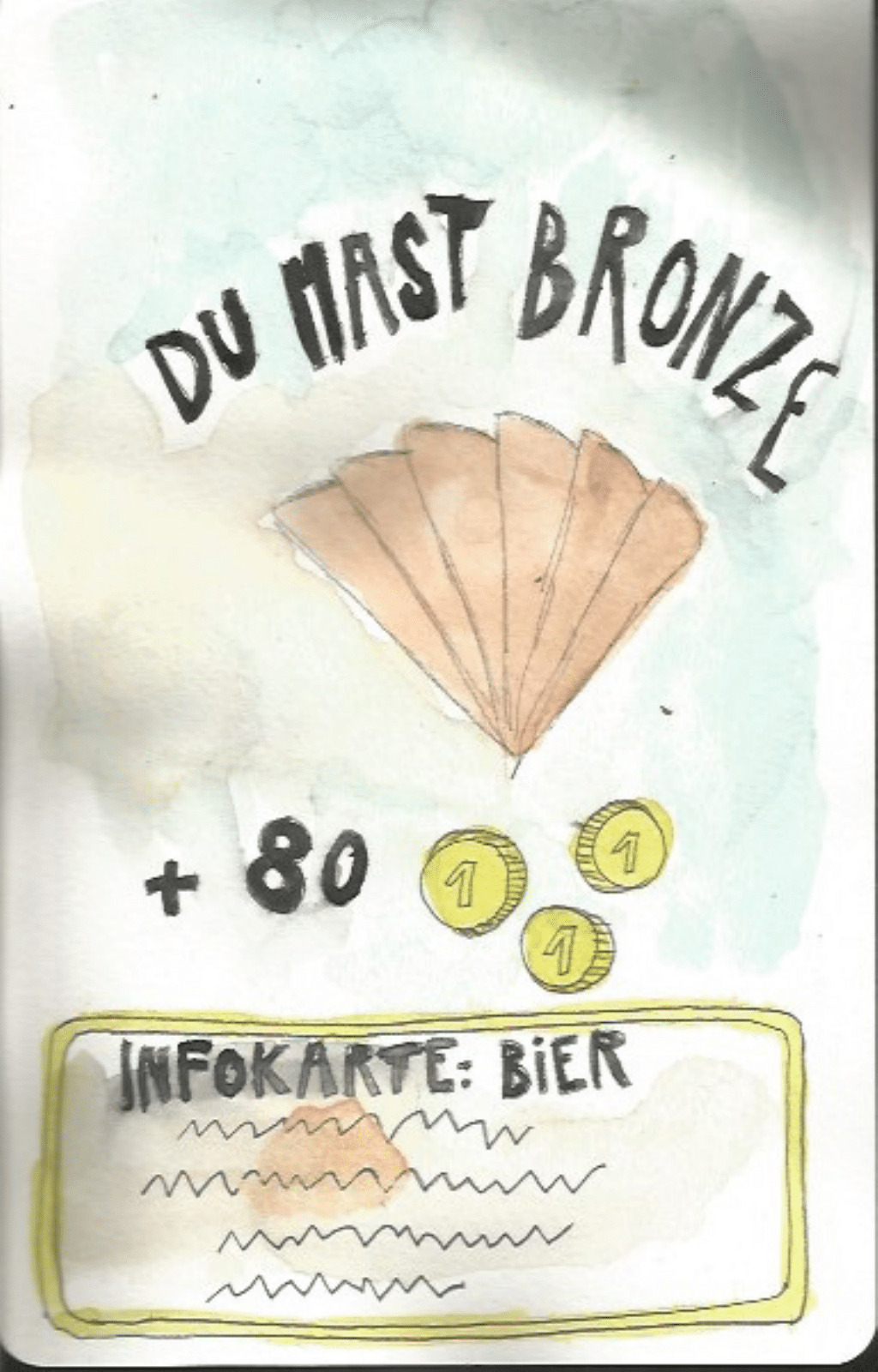
If the player completes the level with a hit rate of at least 80%, he/she receives either a bronze, silver or gold badge, depending on the performance - and as is usual for many similar smartphone games - as well as other bonuses. For a bronze badge, the player* gets an info card about the drink that was new in that level. This contains information such as the country of origin, alcohol content and, above all, what consequences are usually associated with its consumption.
If the player* receives a gold badge, he/she gets as a reward a selfie of the avatar, in front of a landmark of the respective city, as well as facts or testimonials of other (former) alcoholics.
Especially important are the coins that you get for your performance in each level. With these you can either buy accessories for your avatar in a store to make it more individual, or train tickets that allow you to travel to new cities and thus new levels.
If the player manages to complete all cities within a country, he/she will be rewarded with a small interlude between the avatar and a resident of the respective country, in which the avatar is offered an alcoholic drink, which he/she gratefully but firmly refuses. This is an important sign for the player who has managed to avoid being tempted by alcohol. Each of these extras can be viewed again in a gallery in the main menu.
The multiplayer mode
While the focus of the game is on the single player mode, there is still a cooperative multiplayer mode that allows players to play online together with others. The competitive aspect takes a back seat here, as frustration, for example through permanent losing, is to be avoided. For this reason, both players play a level simultaneously in this mode, and the winnings they would have achieved individually are distributed to both of them. This way, both players stay motivated in the long run. This function also offers the possibility to exchange and connect with other people suffering from alcoholism. This is ensured on the one hand by playing together and on the other hand by a chat function. It should be about learning, motivating and building each other up. At the beginning of the game development, we were still focusing more on a competitive character. In the course of the process, however, it became clear that this could also have a demotivating effect on the weaker players, and would therefore counteract the game's ambition.
Additional motivation is provided by push notifications, which encourage players to continue playing by means of a small message from the avatar.
We have chosen unhealthy, risky and pathological alcohol consumption as the theme of this game, as it is an omnipresent, cross-generational problem. Alcoholism must be tackled. Physical health cannot be balanced by exercise or diet alone.
The game uses the usual conventions for smartphone games and should therefore be easy to integrate into the everyday lives of different people, as well as being simple and easy to play anywhere. In the long run, we hope that the game will be a successful motivation for the users.
Bibliography
Gomes de Matos, E., Atzendorf, J., Kraus, L., & Piontek, D. (2016). Substanzkonsum in der Allgemeinbevölkerung in Deutschland. Ergebnisse des Epidemiologischen Suchtsurveys 2015. Sucht, 62 (5), 271-281.
Kraus, L., Pabst, A., Piontek, D., Gmel, g., Shield, K.D., Frick, H. & Rehm, J. (2015). Temporal Changes in Alcohol-Related Morbidity and Mortality in Germany. European Addiction Resarch, 21, 262-272.
Wiers, R., Eberl, C., Rinck, M., Becker, E.S., & Lindenmeyer, J. (2011). Retraining automatic action tendencies changes alcoholic patients‘ approach bias for alcohol and improves treatment outcome. Psychological Science, 22 (4), 490-497.
